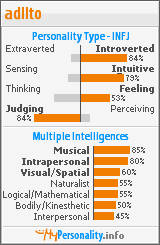 'What we may be witnessing is not just the end of the Cold War, or the passing of a particular period of post-war history, but the end of history as such... That is, the end point of mankind's ideological evolution and the universalization of Western liberal democracy as the final form of human government.'
'What we may be witnessing is not just the end of the Cold War, or the passing of a particular period of post-war history, but the end of history as such... That is, the end point of mankind's ideological evolution and the universalization of Western liberal democracy as the final form of human government.'
Francis Fukuyama was introduced to me in 1993-4 by a fellow student in a political philosophy class. His classic book, The End of History and the Last Man, saw that the progression of human history was a struggle between ideologies. The fall of the Berlin Wall in 1989 was symbolic of the end of the struggles as the world settled towards liberal democracy. More recently he has written about the politics of identity in migration and immigration issues. In February 2007 he wrote, "Modern liberal societies have weak collective identities. ... But if our societies cannot assert positive liberal values, they may be challenged by migrants who are more sure of who they are ... Multiculturalism, as it was originally conceived in Canada, the US and Europe, was in some sense a "game at the end of history." Clearly he has not lost his interest in the end of history as the eventual global triumph of political and economic liberalism but has to face more seriously a changing world.
Fukuyama in a blog entry (dated June 11 2007) records the text of a speech where Presidents Putin of Russia and Nazarbayev of Kazakhstan were present. The optimism of The End of History still very much remains.
"Trust can arise from one of two sources. The first is cultural, where individuals trust one another because they share the same culture, values, traditions, and history. In all societies, trust begins with family and kinship, and then only slowly radiates out to a broader range of social groups.Fukyama's optimism is based on personal and institutional and even national self-interest rooted in interdependence. Is this really a possibility? "There are many political reasons for which countries decide to align with one another on grounds of cultural, ethnic, or historical commonality. But economic rationality demands that trust be based on more impersonal criteria, regarding the degree to which a country’s institutions are law-governed and transparent." Is globalization really that positive even with liberalism? Can any society ever be free from corruption? Where is your's and my hope?
The second form of trust is based on shared interests. This kind of trust can exist between complete strangers, strangers who have nothing in common culturally and may operate in completely different parts of the world. This kind of trust is based on institutions." ... "The second form of trust expands the potential radius of trust indefinitely. It is more durable because it is based on self-interest, and it is the basis of modern economic interdependence. Trust becomes increasingly anchored in self-interest rather than culture as countries modernize."
Fools say in their hearts, "There is no God." They are corrupt, their deeds are vile; there is no one who does good. The LORD looks down from heaven on the human race to see if there are any who understand, any who seek God. Psalm 14:1









